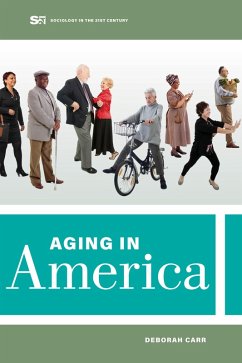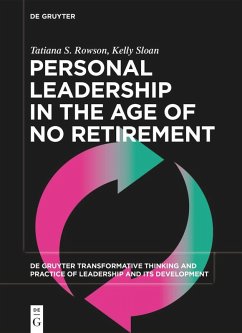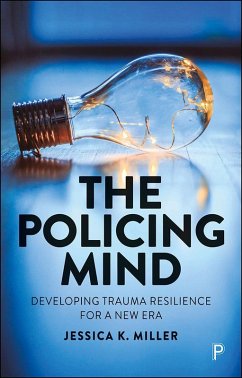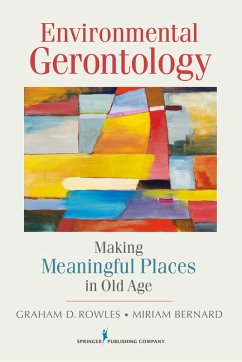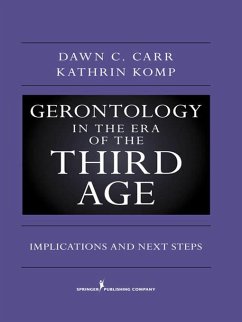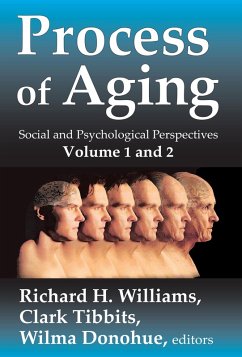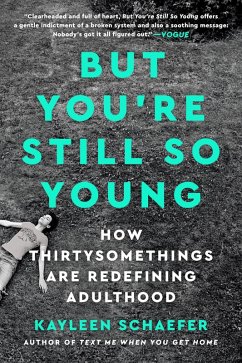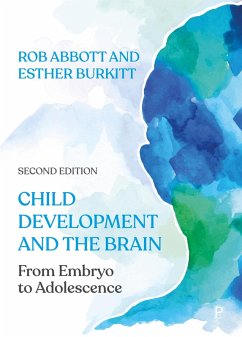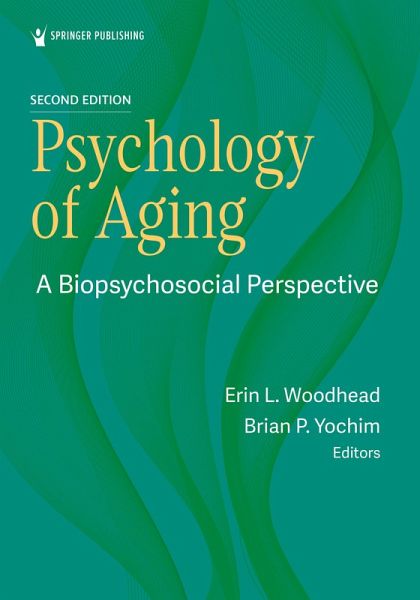
Psychology of Aging (eBook, ePUB)
A Biopsychosocial Perspective
Redaktion: Woodhead, Erin L.; Yochim, Brian P.

PAYBACK Punkte
33 °P sammeln!
This multidimensional text on the psychology of aging prepares future professionals with unparalleled depth, fresh insights, and comprehensive coverageCrafted to equip students across disciplines with a comprehensive understanding of the psychology of aging, this text delves into the multidimensional facets of aging, spanning psychological, biological, and social dimensions. From neuroplasticity to health theories, readers are primed for careers intersecting with the older adult demographic, whether in research or healthcare. With updated content reflecting recent events and research-including...
This multidimensional text on the psychology of aging prepares future professionals with unparalleled depth, fresh insights, and comprehensive coverage
Crafted to equip students across disciplines with a comprehensive understanding of the psychology of aging, this text delves into the multidimensional facets of aging, spanning psychological, biological, and social dimensions. From neuroplasticity to health theories, readers are primed for careers intersecting with the older adult demographic, whether in research or healthcare. With updated content reflecting recent events and research-including the impact of COVID-19 and new chapters on the social context of aging-this edition provides fresh perspectives and insights.
Written with the advanced level student in mind, this textbook stands out notably with its targeted focus on older adults. While others offer broad coverage across adult age ranges, this book delves exclusively into the complexities of aging, offering unparalleled depth and insight. With extensive coverage of critical topics such as changes to the brain, neuroimaging research methods, neurocognitive disorders, cultural nuances, and legal and ethical considerations, the text ensures a comprehensive understanding of aging psychology. What truly distinguishes the book is the expertise behind it-helmed by two editors deeply immersed in clinical practice, teaching, and research in aging, and bolstered by diverse perspectives from over 20 contributors.
New to the Second Edition:
Key Features:
Crafted to equip students across disciplines with a comprehensive understanding of the psychology of aging, this text delves into the multidimensional facets of aging, spanning psychological, biological, and social dimensions. From neuroplasticity to health theories, readers are primed for careers intersecting with the older adult demographic, whether in research or healthcare. With updated content reflecting recent events and research-including the impact of COVID-19 and new chapters on the social context of aging-this edition provides fresh perspectives and insights.
Written with the advanced level student in mind, this textbook stands out notably with its targeted focus on older adults. While others offer broad coverage across adult age ranges, this book delves exclusively into the complexities of aging, offering unparalleled depth and insight. With extensive coverage of critical topics such as changes to the brain, neuroimaging research methods, neurocognitive disorders, cultural nuances, and legal and ethical considerations, the text ensures a comprehensive understanding of aging psychology. What truly distinguishes the book is the expertise behind it-helmed by two editors deeply immersed in clinical practice, teaching, and research in aging, and bolstered by diverse perspectives from over 20 contributors.
New to the Second Edition:
- Learning objectives at the start of each chapter guide student understanding.
- Updated case studies and content reflect recent research and events, including the latest DSM and the impact of COVID-19.
- New chapters on the social context of aging, models of aging, the aging body, and age-related illnesses offer fresh perspectives and insights.
Key Features:
- Explores current issues in aging psychology comprehensively, from neuroimaging to intersectionality.
- Designed for interdisciplinary use, bridging the gap between theory and practice.
- Stimulates critical thinking with discussion questions at the end of every chapter.
- Enhanced instructor resources include an Instructor Manual, Sample Syllabi, chapter PowerPoints, Test Bank, and a Transition Guide from the first to second edition.
Dieser Download kann aus rechtlichen Gründen nur mit Rechnungsadresse in A, D ausgeliefert werden.




